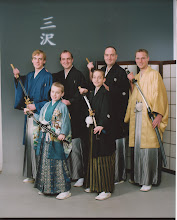The next foundational question is what is the nature of man? Human nature, according to Shintoism, isn’t evil, even though sometimes someone may act unbecomingly of his Kami. But as a nature, mankind is innocent. Shinto’s recognize that there is evil in the world, but they believe that mans natural desire is too do good.
One of the most ancient ethical codes of conduct in the Shinto religion is group identity. They favor group solidarity over individual identity. Wa (benign harmony) is inherent to nature and human relationships and anything that disrupts this harmony is bad. It is the nature of mankind to seek harmony. Any act of individuality would disrupt Wa, so the nail that sticks up gets hammered down.
Rules governing human behavior are necessary to keep the status of Wa; without which society and nature would fall into disorder. Many maintain the belief that if social nonconformity were tolerated it would result in chaos. Anything that disrupts the Wa (emotions, desires, individualistic action) are looked upon as evil. Mankind isn’t evil as a nature, though. While living, everyone should be kind to each other and be careful not to wrong those around them, because they believe that someone’s Kami may come back and cause trouble to those who wronged them.
What is truth? Shinto’s don’t believe in heaven or hell; they do believe there is a place of impurity. They have no fear of torment in hell for wrong doing. On the flip side, they don’t have a heaven to look forward to for doing what’s right. What then, is their motivation for doing what’s right? They don’t have any holy scriptures as a standard or any deity worthy of imitating (their deities all acted in ways that were most selfish and “unbecoming of their Kami”).So how come Japan has a low crime rate and are some of the most honest people one will ever come across? It all comes back to the group identity. When you do something that breaks the ethics code you shame your tatamae (how one looks to the outside world) and the ie (your employer, family, etc.). Your behavior will reflect on your family and your friends. If you do something that shames them, they will shun you. This circle of conduct greatly regulates how a person will behave.
The Shinto’s don’t believe there is an absolute dichotomy of what is right and wrong; but because mankind is inherently good, they will always act in a worthy manner, whether it was noble or not. If the group says it is okay, then it is okay; you just don’t want to be the person standing out.
What is morality? This topic is a little bit hard to nail down, because truth is a matter of what the group says is right, and even though people do bad things they are really good, and there is no absolutes and all things are gods.
There isn’t a righteousness and sinfulness, there is purity and impurity. Upon first glance, there isn’t much difference between righteousness and purity and sinfulness and impurity. The difference is how the terms “purity,” and “impurity,” are defined. They don’t draw a line between what is right and what is right, but what is pure and impure. Impurity isn’t wrong in and of itself; Shinto’s have impurity just by day to day business. They continuously purify themselves, not because they feel guilty for anything they’ve done, but because it provides peace of mind and good luck.
Purity is the lifeline of the Shinto religion. Blessing a car is part of the assembly process for Japanese cars. All people purify themselves on a daily, weekly, and annual basis.
The Place of Pollution is where all the dead go. It is called The Place of Pollution because death is considered impure. It isn’t a place reserved for moral offenders, like hell, but a place where all people go.
The Shinto’s know death; they understand it is a heartbreaking experience, and they believe even the Kami are heartbroken by it. While the body goes to The Place of Pollution; the Kami is released from all physical bounds and again becomes part of the universal life force. The universal life force is the Kami, because all things have Kami and Kami is essence. The deceased family member’s Kami are then worshipped by the remaining family.
You cannot carry your cross while sitting on the fence
Remember Who We Are
Thursday, April 15, 2010
Subscribe to:
Post Comments (Atom)
votejaredn29









2 comments:
Jared
Good job. It does leave a sense of hopelessness to those who are really honest with themselves or for those who have sinned in a manner that is obvious to all. You might add in a quicck overview of how the suicide rates in Japan are linked to this aspect of Shinto.
Dad
Good for you! You've been digging. I love it when you assign yourself things like this.
Post a Comment